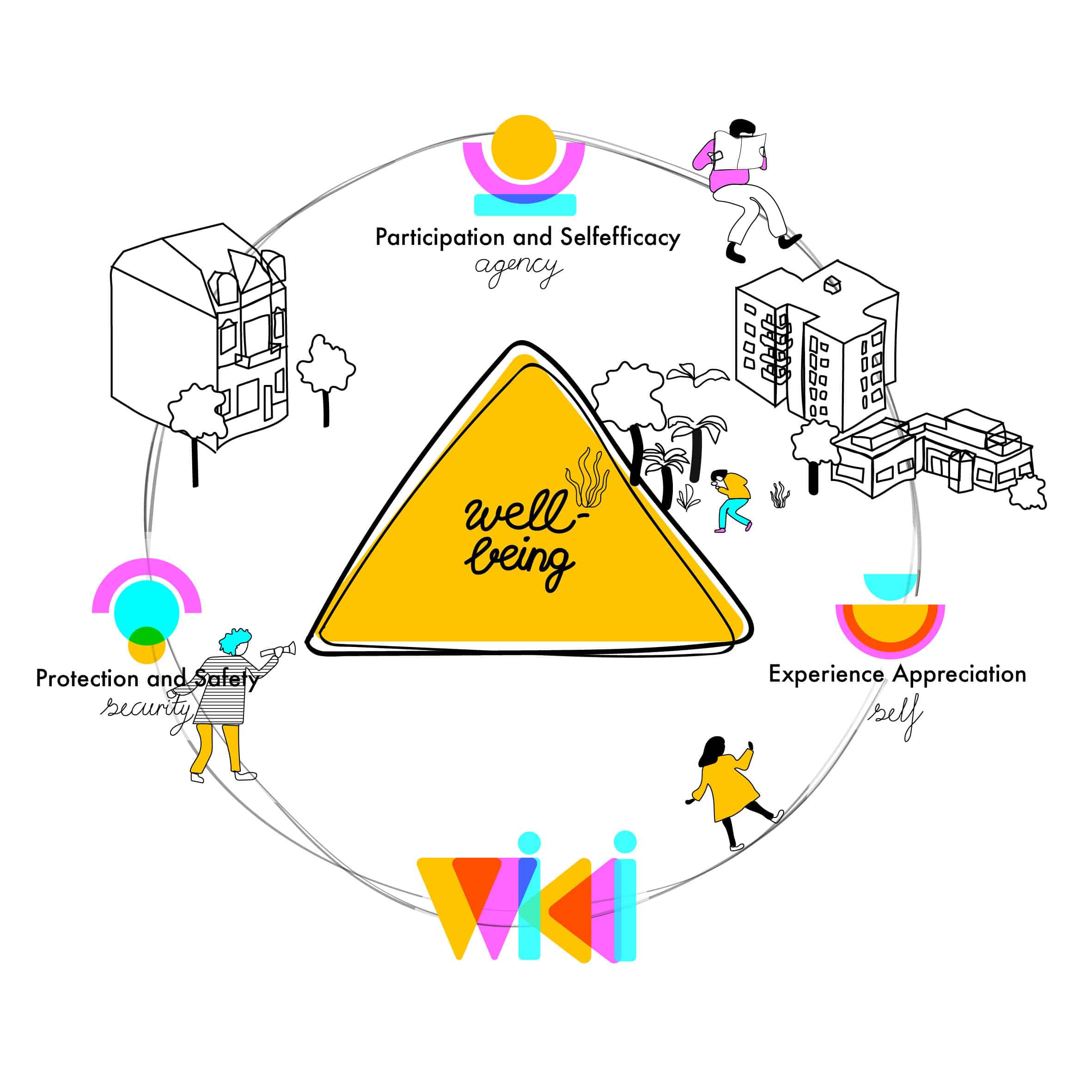2022- 2024
Topic
The collaborative project WIKK*I focuses on the perspective of children and investigates how children experience well-being at extracurricular learning places in a socio-spatial context. The turn to the perspective of children has developed from the criticism of an adult-centered view of children’s well-being. Only a few studies ask what children themselves understand by well-being and what concrete experiences they have in this regard in their everyday lives.
The project reconstructs from the perspective of children how, where and with whom they gather good experiences in their socio-spatial environment with regard to participation, protection & security as well as appreciation of their own person and where they see a need for improvement. In this context, WIKK*I is particularly interested in how orders of difference and inequality are inscribed in these experiences and perceptions of children and generate unequal well-being.
Project
The study works explorative with two ethnographic research studies at contrastively selected locations in Germany: the children’s recreational facility “Graefekids” in Berlin-Kreuzberg and the “Mädchentreff” in Bielefeld. Both facilities are characterized by a high level of commitment within a local educational institutions. In addition, the focus of both selected educational institutions is on social inequalities, gender and interculturality, although they pursue different concepts in addressing the children with regard to thematic priorities. The research project focuses on the following main questions:
1. What does well-being mean from the point of view of children in a socio-spatial context? What are children’s experiences at non-school learning sites – specifically with regard to the dimensions of agency, safety & security and appreciation of their own person – the self?
2. How do inequality dimensions become effective, but also how are they shifted?
3. What are the consequences for the physical-spatial and socio-cultural design of social space?
4. Which approaches can be developed in cooperation with stakeholders in municipal educational spaces?
With regard to the spatial-material dimension of children’s well-being at at extracurricular learning places, we will first conduct a structural-physical survey of the selected case studies and their surroundings, with the focus of access and transition zones of the extracurricular learning places as well as on their embedding in the spatial settlement context. This will be followed by an examination of physical space in the context of relationships with children and the meaning of this space for children based on affordance theory. In doing so, we will look at objects and materiality as well as the physical arrangements of this space that can be experienced physically and examine how these in context influence participation and involvement in relationships, activities and things.
The project will use the results to develop urban and educational planning options for action with practitioners and community stakeholders.
Collaborative Project
- Technical University of Berlin, Institute for Humanities and Educational Science
- University of Vechta, Institute for Social and Educational Sciences, Subject Social Work
Project Management
Subproject Urban and Architectural Planning
Technical University, Institute of Urban and Regional Planning: Prof. Dr. Angela Million
Subproject Ethnography
Berlin Technical University Berlin, Institute for Humanities and Educational Science
Subproject Ethnography
University of Vechta, Faculty I for Social and Educational Sciences, Subject Social Work:
Sponsored by
Federal Ministry of Education and Research (BMBF) in the collaborative program “Empirical Educational Research – Reducing Educational Barriers: Learning Environments, Educational Success and Social Participation”
Duration: 01/2022-12/202
Further Participation
- Intercultural Children’s and Recreational Facility Graefekids, Berlin-Kreuzberg
- Mädchentreff* Bielefeld e.V.
Project Management Urban and Spatial Planning
- Katrin Schamun, Research Associate (Postdoc), TU Berlin
- Sophie Dilg, Student Assistant, TU Berlin
Projekt Management Ethnography
Project Management Ethnography Bielefeld
- Yasmina Gandouz-Touati, Research Associate, University of Vechta
-
Jacqueline Schöttler, Student Assistant, University of Vechta

